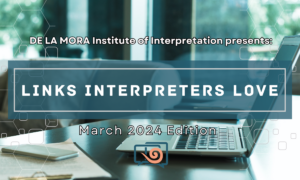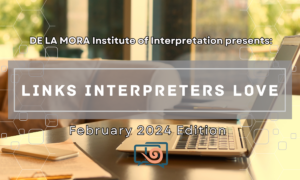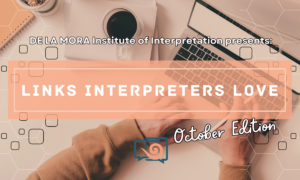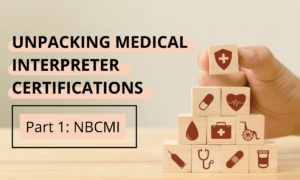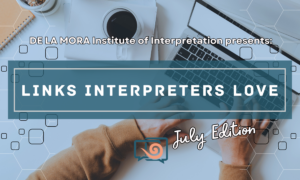
LIL: Know How Much You Know; The Dunning-Kruger Effect
Introspection is a big part of being a translator or interpreter, or any professional for that matter. It’s important to sometimes reflect on ourselves and our work so we can get an idea of where we are professionally, what we need to improve on, and most importantly to keep our egos in check. Lack of self-reflection can lead to incompetence, or in more grave circumstances ignorance of incompetence. David Dunning said it best:
“If you’re incompetent, you can’t know you’re incompetent. . . . The skills you need to produce a right answer are exactly the skills you need…
LIL: 5 Things to Keep In Mind When Learning a New Language
So you want to go about learning a new foreign language. Great! It’s an extremely valuable and important skill to have nowadays, and it can be used in far more ways than you’d imagine. There are many ways to learn another language; none of which are necessarily better than the others, rather, they all have their own advantages and disadvantages.
With that in mind, this week we’ll be talking about five helpful things to keep in mind that can apply to whichever learning method you choose!

Accept that you will make mistakes
This is probably the…
LIL: What makes a bad translator or interpreter?
While reading through this brief discussion with Betty Howell on what makes a good translator, a lot of different questions came to mind. “Why do certain characteristics, i.e. the recognition of language variants and cultural differences, make a good translator? Can these be applied to the field of interpretation as well?” Most notably, “if this is what makes a good translator, what makes a bad one?”
It’s not uncommon to focus on the good aspects of a given field, and how to be the best that we can be. It’s not a bad thing of course; I strive…
LIL: Lose Your Accent; Learn IPA

“IPA” transcribed in IPA
The International Phonetic Alphabet (IPA) is an alphabetic system of phonetic notation introduced in the late 19th century by the International Phonetic Association (also IPA). It is a standardized representation of the oral components of language: phones (any distinct speech sound), phonemes (units of sound that distinguish one word from another), intonation and the separation of words and syllables. Thus, an IPA Transcription is a language-neutral visual representation of the sounds we produce in our speech. In other words, IPA shows you how to say things. More importantly, perhaps, is that it shows you how to…
It’s Time To Pay It Forward: Interpreter Challenge
Dear Colleagues,
First, let me say that I am so grateful to those pioneers who had the vision to create an organization like NAJIT (National Association of Judiciary Interpreters and Translators) for individuals like us who are engaged in providing an invaluable service. After all, Court Interpreters work so those who cannot speak or understand the language can seek justice without boundaries or limitations. Interestingly, this is a field that is only beginning to be recognized as a respected profession in this country, even though President Carter signed the Court Interpreter’s Act the same year that our association was…





